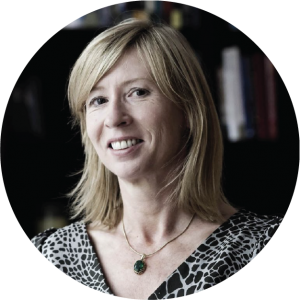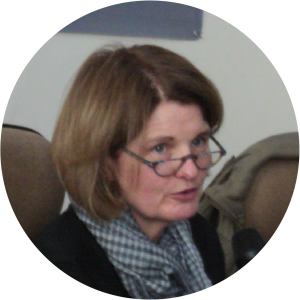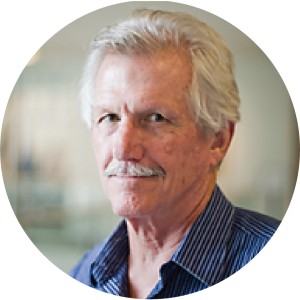Key Staff Members | 2018-23
The 2018-21 JMCE at UNC includes 12 key staff members. These faculty serve in four different departments–Political Science, History, Geography, and German Languages and Literatures. Together the Key Staff bring a wealth of experience and varied perspectives, which will strengthen the dialogue and bring a broader and more diverse audience to the discussion table. Key Staff Members have designed events which will foster collaborative research projects and contribute to the dialogue surrounding key issues facing the EU and the US by producing datasets and publications, among other ways of disseminating research. To view key staff members from the 2015-18 Jean Monnet Center of Excellence, please visit the 2015-18 Key Staff Member page.

Cemil Aydin
Cemil Aydin is Professor of Global History at UNC. His main interests are comparative and transnational modern world history, with area foci on Europe, the Middle East, and East Asia. He is the author of two books, The Politics of Anti-Westernism in Asia (Columbia University Press, 2007) and The Idea of the Muslim World (Harvard University Press, 2017). He has contributed articles to leading journals in history. In 2018, he and his co-authors published an English edition of a scholarly text on World History, An Emerging Modern World: 1750–1870 (Harvard University Press).

Banu Gökarıksel
Banu Gökarıksel is Professor of Geography and Global Studies, and the Caroline H. and Thomas S. Royster Distinguished Professor for Graduate Education at The Graduate School. Her main interests are the politics of Muslim identities and spaces, with a focus on the intersections of religion and gender. She has been conducting multimethod research in Turkey and Europe since 1996. Her research has been supported by the National Science Foundation and the National Geographic Society. She has published more than twenty five articles and book chapters and edited two special issues of journals. She is currently working on a book about how a heightened sense of sectarian divisions are affecting everyday life and relations between neighbours in urban Turkey. She is also co-editing a book on feminist geography and a special issue on Muslim women’s geographies for the journal Political Geography.
Klingorová, K., & Gökarıksel, B. (2019). Auto‐photographic study of everyday emotional geographies. Area, 51(4), 752-762.
Gökarıksel, B., Neubert, C., & Smith, S. (2019). Demographic fever dreams: Fragile masculinity and population politics in the rise of the global right. Signs: Journal of Women in Culture and Society, 44(3), 561-587.
Gökarıksel, B. (2018). Thinking Women, Feminism, and Muslim Identity through Bodies and Space in Turkey. Journal of Middle East Women’s Studies, 14(1), 116-123.
Klingorová, K., & Gökarıksel, B. (2018). ‘God was with me everywhere’: women’s embodied practices and everyday experiences of sacred space in Czechia. Gender, Place & Culture, 25(1), 37-60.
Gökarıksel, B., & Secor, A. J. (2018). Affective geopolitics: Anxiety, pain, and ethics in the encounter with Syrian refugees in Turkey. Environment and Planning C: Politics and Space, 2399654418814257.

Liesbet Hooghe
Liesbet Hooghe is the W.R. Kenan Distinguished Professor of Political Science at UNC, and Robert Schuman Fellow at the European University Institute, Florence. She is the past Chair of the European Politics and Society Section of the American Political Science Association and of the EU Studies Association. Her interests lie in European integration, multilevel governance, decentralization, international organization, and political parties. Recent books include Measuring International Authority (Oxford University Press, 2017, multi-authored), Community, Scale and Regional Governance (OUP, 2016 with Gary Marks), Measuring Regional Authority (OUP, 2016, multi-authored), and The European Commission in the 21st Century (OUP, 2013, multi-authored). She is the co-editor of a series on Transformations in Governance with OUP.
Hooghe, L., & Marks, G. (2020). Is liberal intergovernmentalism regressive? A comment on Moravcsik (2018). Journal of European Public Policy, 27(4), 501-508.
Hooghe, L., & Marks, G. (2019). Grand theories of European integration in the twenty-first century. Journal of European Public Policy, 26(8), 1113-1133.
Hooghe, L., Lenz, T., & Marks, G. (2019). Contested world order: The delegitimation of international governance. The Review of International Organizations, 14(4), 731-743.
Hooghe, L., & Marks, G. (2018). Cleavage theory meets Europe’s crises: Lipset, Rokkan, and the transnational cleavage. Journal of European Public Policy, 25(1), 109-135.

Evelyne Huber
Evelyne Huber is the Morehead Alumni Distinguished Professor of Political Science. She is the author and co-author of five books, including Capitalist Development and Democracy (with Dietrich Rueschemeyer and John D. Stephens, 1992); Development and Crisis of the Welfare State (with John D. Stephens, 2001); and Democracy and the Left: Social Policy and Inequality in Latin America (with John. D. Stephens, 2012), all winners of book awards. She has also contributed articles on social policy and political economy in the EU and Latin America to leading journals in political science and sociology. She received an Honorary Doctorate from the University of Bern in 2010.
Alper, K., Huber, E., & Stephens, J. D. (in press). Poverty and Social Rights Among the Working Age Population in Post-Industrial Democracies. Social Forces.
Huber, E., Gunderson, J., & Stephens, J. D. (2020). Private education and inequality in the knowledge economy. Policy and Society, 39(2), 171-188.
Huber, E., Stephens, J. D., & Alper, K. (2020). The varied sources of increasing wage dispersion. In The European Social Model under Pressure (231-252). Springer VS, Wiesbaden.
Choi, Y. J., Huber, E., Kim, W. S., Kwon, H. Y., & Shi, S. J. (2020). Social investment in the knowledge-based economy: new politics and policies. Policy and Society, 1-24.
Alper, K., Huber, E., & Stephens, J. D. (2019). Work and poverty in post-industrial democracies (No. 763). LIS Working Paper Series.
Huber, E., Huo, J., & Stephens, J. D. (2019). Power, policy, and top income shares. Socio-Economic Review, 17(2), 231-253.
Huber, E., & Niedzwiecki, S. (2018). Changing systems of social protection in the context of the changing political economies since the 1980s. Ciencia & saude coletiva, 23, 2085-2094.
Huber, E., Petrova, B., & Stephens, J. D. (2018). Financialization and inequality in coordinated and liberal market economies (No. 750). LIS Working Paper Series.

Konrad Jarausch
Konrad H. Jarausch is Lurcy Professor of European Civilization in the Department of History. He has written or edited over 40 books in modern German and European history. Most recently, he wrote Out of Ashes: A New History of Europe in the Twentieth Century (Princeton, 2015) focusing on the theme “Taming Modernity.” He has been concerned with the problem of interpreting twentieth-century German and European history, the learning processes after 1945, the issue of cultural democratization, and the cultural history of the Cold War. He has been involved in discussions about quantitative methods in history, problems of postmodernism, and questions of European memory culture as well as the US-EU partnership. Jarausch recently published: “The European Project: A Critical Reconsideration” in a new volume on EU Foreign Policy edited by Kiran Klaus Patel. He co-founded the UNC Center for European Studies and co-directed a new research institute on contemporary history, the Zentrum für Zeithistorische Forschung in Potsdam, Germany.
Jarausch, K. H. (2019). Broken Lives: How Ordinary Germans Experienced the 20th Century. Princeton University Press.
Jarausch, K. H. (2019). History of Society and Holocaust Research: Thoughts on a Tenuous Relationship. In Beyond “Ordinary Men” (176-189). Verlag Ferdinand Schöningh.
Jarausch, K. H. (2018). Organic Modernity: National Socialism as Alternative Modernism. A Companion to Nazi Germany, 33.
Jarausch, K. H. (2018). Contemporary history as critical perspective: Transatlantic debates about the Nazi past. In The TransAtlantic reconsidered. Manchester University Press.
Jarausch, K. H. (2018). Central European History at Fifty: Notes from a Longtime Fan. Central European History, 51(1), 12.
Maser, P., Jarausch, K., Reulecke, J., Stambolis, B., & Glaesmer, H. (2018). Wissenschaftler aus der Kriegskindergeneration als Zeitzeugen: Peter Maser, Konrad Jarausch und Jürgen Reulecke im Gespräch mit Barbara Stambolis, kommentiert von Heide Glaesmer. Totalitarismus und Demokratie, 15(2), 233-262.
Westermeyer, W., Jarausch, K., Kemnitz, H., Radtke, F. O., Rolfes, M., & Vorderer, P. (2018). Eckert. Die Schriftenreihe Studien des Georg-Eckert-Instituts zur internationalen Bildungsmedienforschung.
Jarausch, K. H. (2018, February). Rivalen der Moderne. Amerika und Deutschland im 20. Jahrhundert. In Feinde, Freunde, Fremde? (19-38). Nomos Verlagsgesellschaft mbH & Co. KG.
Graf, R., Jarausch, K. H., & Komorowska, B. (2018). „Kryzys” we współczesnej historii i historiografii. Civitas. Studia z Filozofii Polityki, 22, 17-49.
Priscilla Layne
Priscilla Layne is Associate Professor of German, Adjunct Associate Professor of African, African American and Diaspora Studies, and affiliated with the Global Cinema Studies Program. She has guest lectured at Eberhard Karls Universität in Tübingen and at Universität Bremen. Layne focuses on sci-fi, cinema, and Black culture in Germany and Europe. Her first book, White Rebels in Black: German Appropriation of Black Popular Culture, was published in 2018 by the University of Michigan Press. She is also the co-editor of the volume Rebellion and Revolution: Defiance in German Language, History and Art (2008). She is working on a monograph, Out of this World: Afro-German Afrofuturism. She held a Fellowship at the American Academy in Berlin in fall 2018. She has published articles on German film, literature, translation and music in German Studies Review, the Women in German Yearbook and Colloquia Germanica.
Kost, K., Nolan, D., Peabody, S., Hock, L., & Layne, P. (2020). GSA 2019 Seminar Report. German Studies Review, 43(2), 377-394.
Etzler, M., & Layne, P. (Eds.). (2020). Rebellion and Revolution: Defiance in German Language, History and Art. Cambridge Scholars Publishing.
Hock, L., & Layne, P. (2020). German-Speaking Women, Africa, and the African Diaspora: Seminar Report, GSA 2019. German Studies Review, 43(2), 384-391.
Layne, P., & Malakaj, E. (2019). Advocating for Queer of Color Studies in German Graduate Programs. Die Unterrichtspraxis/Teaching German, 52(2), 194-202.
Layne, P. (2019, February). The Darkening of Europe: Afrofuturist Ambitions and Afropessimist Fears in Damir Lukacevic’s Dystopian Film Transfer (2010). In Seminar: A Journal of Germanic Studies (Vol. 55, No. 1, pp. 54-75). University of Toronto Press.
Layne, P. (2019). Wie die Deutschen weiß wurden: Kleine (Heimat) Geschichte des Rassismus by Wulf D. Hund. Monatshefte, 111(2), 295-297.
Layne, P. (2019). On Racism without Race: The Need to Diversify Germanistik and the German Academy. In M. Arghavan, N. Hirschfelder, L. Kopp, & K. Motyl (Ed.s), Who Can Speak and Who Is Heard/Hurt?: Facing Problems of Race, Racism, and Ethnic Diversity in the Humanities in Germany, 217-38.
Layne, P. (2018). White rebels in black: German appropriation of black popular culture. University of Michigan Press.
Layne, P. (2018). Space Is the Place: Afrofuturism in Olivia Wenzel’s Mais in Deutschland und Andered Galaxien (2015). German Life and Letters, 71(4), 511-528.
Layne, P. (2018). Remapping Black Germany: New Perspectives on Afro-German History, Politics, and Culture ed. by Sara Lennox. Feminist German Studies, 34, 167-168.
Layne, P. (2018). All That Glitters Isn’t Gold: Auma Obama’s Nightmare of Postunification Germany. Camera Obscura: Feminism, Culture, and Media Studies, 33(3 (99)), 75-101.

Gary Marks
Gary Marks is Burton Craige Professor of Political Science at UNC and a visiting Robert Schuman Fellow at European University Institute in Florence. In 2010 he was awarded a Humboldt Forschungspreis (Humboldt Research Prize) for his contributions to political science. He co-founded the UNC Center for European Studies and EU Center of Excellence in 1994 and 1998, respectively, and served as Director until 2006. He has co-led the Chapel Hill Expert Survey of European political parties since 1999. Marks has published widely in the leading journals of political science and sociology. His (co-) authored books include Measuring international Authority: A Postfunctionalist Theory, Vol. III (OUP, 2017, multi-authored); Scale and Regional Governance (OUP, 2016 with Liesbet Hooghe); and Multi-Level Governance and European Integration (Rowman & Littlefield, 2001 with Liesbet Hooghe).
Hooghe, L., & Marks, G. (2020). Is liberal intergovernmentalism regressive? A comment on Moravcsik (2018). Journal of European Public Policy, 27(4), 501-508.
Hooghe, L., & Marks, G. (2019). Grand theories of European integration in the twenty-first century. Journal of European Public Policy, 26(8), 1113-1133.
Hooghe, L., Lenz, T., & Marks, G. (2019). Contested world order: The delegitimation of international governance. The Review of International Organizations, 14(4), 731-743.
Hooghe, L., & Marks, G. (2018). Cleavage theory meets Europe’s crises: Lipset, Rokkan, and the transnational cleavage. Journal of European Public Policy, 25(1), 109-135.

Susan Dabney Pennybacker
Susan Pennybacker is the Chalmers W. Poston Distinguished Professor of European History. She is a modern British historian whose work is on the long British twentieth century in a global context. She is completing a monograph on London refuge and political exile from 1945 to 1994, which considers the lives of individuals moving in and out of the metropolis, three crucial points of activist engagement amongst the former imperial and colonial intelligentsia, and their circles. She works extensively in archives in the UK, New Delhi, Cape Town, Johannesburg, and Port of Spain. She has connections with key groups at UNC, who are concerned with the EU and its critics: Modern British historians in the Triangle as well as those in related disciplines; graduate students who work on Europe and non-European areas that interface with the UK and Europe, emphasizing global and transnational scholarship, and PhD work that applies those methodologies and crossing extra-European boundaries.

John D. Stephens
John D. Stephens is the Gerhard E. Lenski, Jr. Distinguished Professor of Political Science and Sociology, Director of the Center for European Studies, Jean Monnet Center of Excellence, TransAtlantic Masters program, and Chair of the Contemporary European Studies Major. His main interests are comparative social policy and political economy, with area foci on Europe, North America, and the Antipodes. He is the author or co-author of five books including Capitalist Development and Democracy (with Evelyne Huber and Dietrich Rueschemeyer, 1992) and Development and Crisis of the Welfare State (with Evelyne Huber, 2001). He has also contributed articles to leading journals in political science and sociology such as “Postindustrial Social Policy,” with Evelyne Huber in The Politics of Advanced Capitalism (Cambridge University Press 2015). He and Evelyne Huber are currently working on a book on inequality, social investment, and employment in post-industrial, knowledge economies.
Alper, K., Huber, E., & Stephens, J. D. (in press). Poverty and Social Rights Among the Working Age Population in Post-Industrial Democracies. Social Forces.
Huber, E., Gunderson, J., & Stephens, J. D. (2020). Private education and inequality in the knowledge economy. Policy and Society, 39(2), 171-188.
Huber, E., Stephens, J. D., & Alper, K. (2020). The varied sources of increasing wage dispersion. In The European Social Model under Pressure (231-252). Springer VS, Wiesbaden.
Stephens, J. D. (2020). Daniel Vaughan-Whitehead (ed.) (2018), Reducing Inequalities in Europe: How Industrial Relations and Labour Policies Can Close the Gap, Cheltenham: Edward Elgar; Geneva: International Labour Office. Journal of Social Policy, 49(3), 673-675.
Alper, K., Huber, E., & Stephens, J. D. (2019). Work and poverty in post-industrial democracies (No. 763). LIS Working Paper Series.
Huber, E., Huo, J., & Stephens, J. D. (2019). Power, policy, and top income shares. Socio-Economic Review, 17(2), 231-253.
Huber, E., Petrova, B., & Stephens, J. D. (2018). Financialization and inequality in coordinated and liberal market economies (No. 750). LIS Working Paper Series.
Stephens, J. D. (2018). The welfare state and economic development: The United States in comparative perspective. Chinese Social Security Review, (1), 12.

Milada Vachudova
Milada Vachudova is Associate Professor of Political Science and Chair of Global Studies. She publishes on EU enlargement and political change in post-communist Europe. Her expertise includes European security, economic reform, corruption and rule of law. Her book, Europe Undivided: Democracy, Leverage and Integration After Communism was awarded the Stein Rokkan Prize for Comparative Social Science Research. She is working on a book on EU leverage in the Western Balkans. She helps lead the Chapel Hill Expert Survey on the positions of political parties on EU-related issues, having added the post-communist EU countries and candidates to the survey. Vachudova was a British Marshall Scholar at the University of Oxford and has held fellowships from several institutions including the European University Institute, the National Science Foundation, the Center for European Studies at Harvard University, and the Center of International Studies at Princeton University.
Vachudova, M. A. (2020). Ethnopopulism and democratic backsliding in Central Europe. East European Politics, 1-23.
Vachudova, M. A. (2019). From competition to polarization in central Europe: How populists change party systems and the European Union. Polity, 51(4), 689-706.
Meunier, S., & Vachudova, M. A. (2018). Liberal intergovernmentalism, illiberalism and the potential superpower of the European Union. JCMS: Journal of Common Market Studies, 56(7), 1631-1647.
Hanley, S., & Vachudova, M. A. (2018). Understanding the illiberal turn: democratic backsliding in the Czech Republic. East European Politics, 34(3), 276-296.
Vachudova, M. A. (2019). EU enlargement and state capture in the Western Balkans. In J. Džankić, S. Keil, & M. Kmezić (Eds.), The Europeanisation of the Western Balkans: A Failure of EU Conditionality? (pp. 63-85). Palgrave Macmillan.

